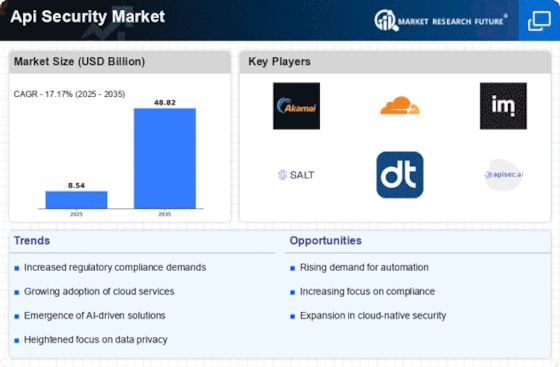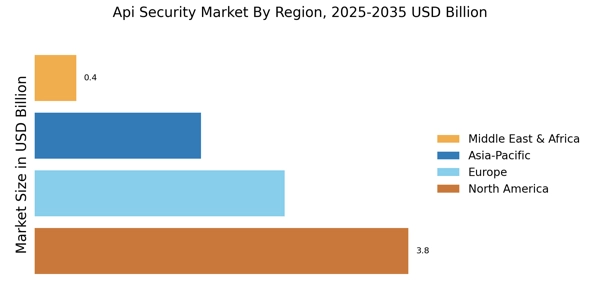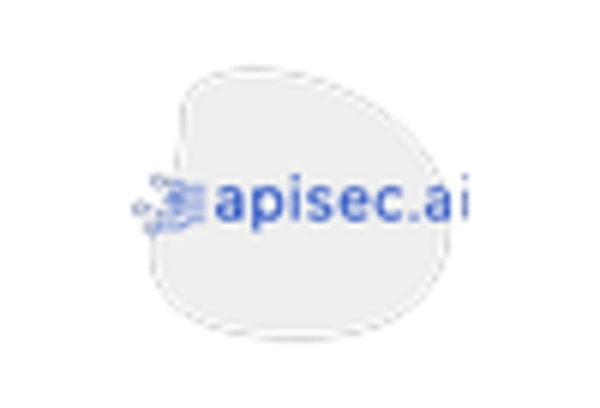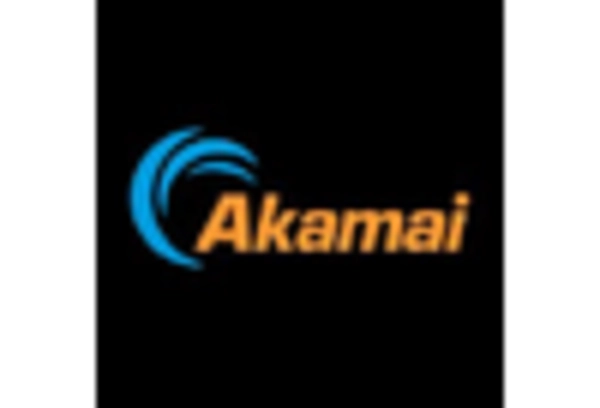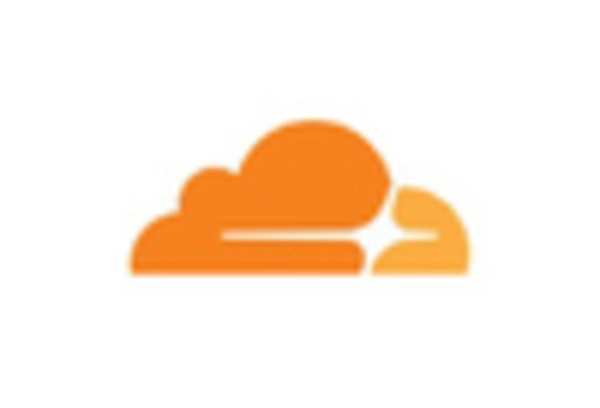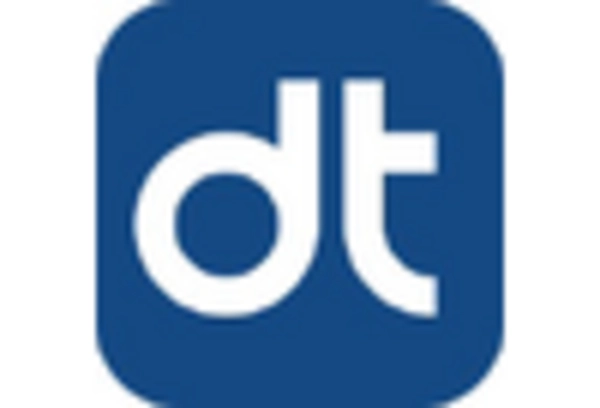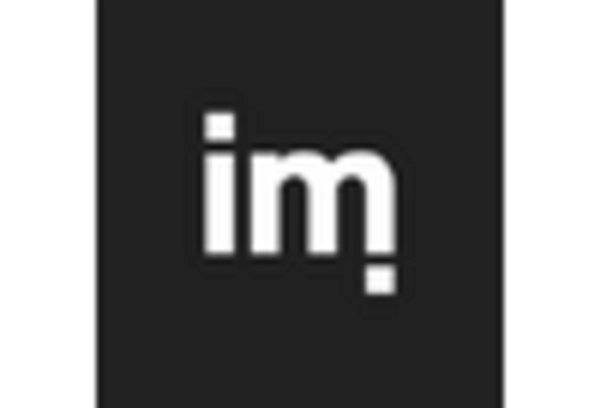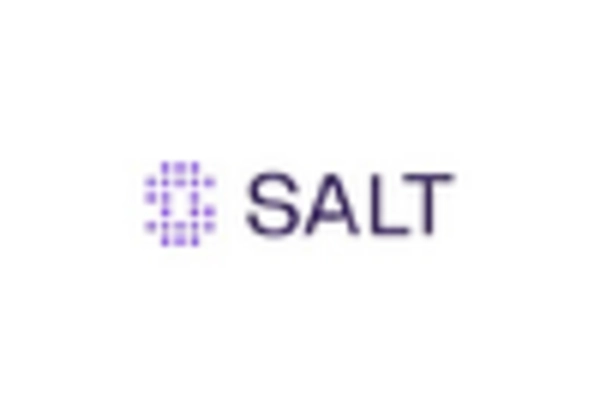Rising Cybersecurity Threats
The Api Security Market is experiencing a surge in demand due to the increasing frequency and sophistication of cyber threats. Organizations are recognizing the necessity of robust security measures to protect their APIs from potential breaches. In 2025, it is estimated that cybercrime will cost businesses over 10 trillion dollars annually, underscoring the urgency for effective API security solutions. As companies transition to digital platforms, the attack surface expands, making APIs prime targets for malicious actors. This trend compels organizations to invest in advanced security protocols, thereby driving growth in the Api Security Market. The need for comprehensive security frameworks that can adapt to evolving threats is paramount, suggesting a sustained upward trajectory for market investments.
Increased Use of Cloud Services
The Api Security Market is experiencing growth due to the rising adoption of cloud services, which inherently rely on APIs for functionality. As organizations migrate to cloud-based platforms, the need for secure API management becomes critical. In 2025, the cloud services market is projected to surpass 500 billion dollars, indicating a robust trend towards cloud integration. This shift presents unique security challenges, as APIs can expose vulnerabilities if not properly secured. Consequently, businesses are increasingly investing in API security solutions to safeguard their cloud environments. The emphasis on securing APIs in cloud architectures is likely to drive innovation and investment in the Api Security Market, as organizations seek to protect their data and maintain operational integrity.
Regulatory Compliance Requirements
The Api Security Market is significantly influenced by the stringent regulatory landscape that mandates organizations to adhere to data protection and privacy laws. Regulations such as the General Data Protection Regulation (GDPR) and the California Consumer Privacy Act (CCPA) impose heavy penalties for non-compliance, prompting businesses to prioritize API security. In 2025, it is projected that compliance-related expenditures will reach approximately 20 billion dollars, reflecting the financial implications of regulatory adherence. Organizations are increasingly aware that robust API security measures are not merely optional but essential for maintaining compliance and safeguarding customer data. This growing emphasis on regulatory compliance is likely to propel investments in the Api Security Market, as firms seek to mitigate risks associated with data breaches and legal repercussions.
Expansion of Digital Transformation Initiatives
The Api Security Market is benefiting from the widespread adoption of digital transformation initiatives across various sectors. As organizations increasingly leverage APIs to enhance operational efficiency and customer engagement, the demand for secure API solutions intensifies. In 2025, it is anticipated that the digital transformation market will exceed 2 trillion dollars, highlighting the scale of investment in technology-driven solutions. This shift towards digitalization necessitates a corresponding focus on API security to protect sensitive information and maintain trust with users. Consequently, businesses are compelled to integrate advanced security measures into their API frameworks, thereby driving growth in the Api Security Market. The intersection of digital transformation and security is likely to shape the future landscape of API management.
Growing Awareness of API Security Best Practices
The Api Security Market is witnessing a heightened awareness regarding the importance of implementing best practices for API security. As organizations become more educated about the potential risks associated with unsecured APIs, there is a growing demand for training and resources to enhance security measures. In 2025, it is estimated that the market for API security training and certification will reach 1 billion dollars, reflecting the increasing prioritization of security education. This trend suggests that organizations are not only investing in technology but also in human capital to ensure effective API management. The focus on best practices is likely to foster a culture of security within organizations, thereby driving sustained growth in the Api Security Market.


